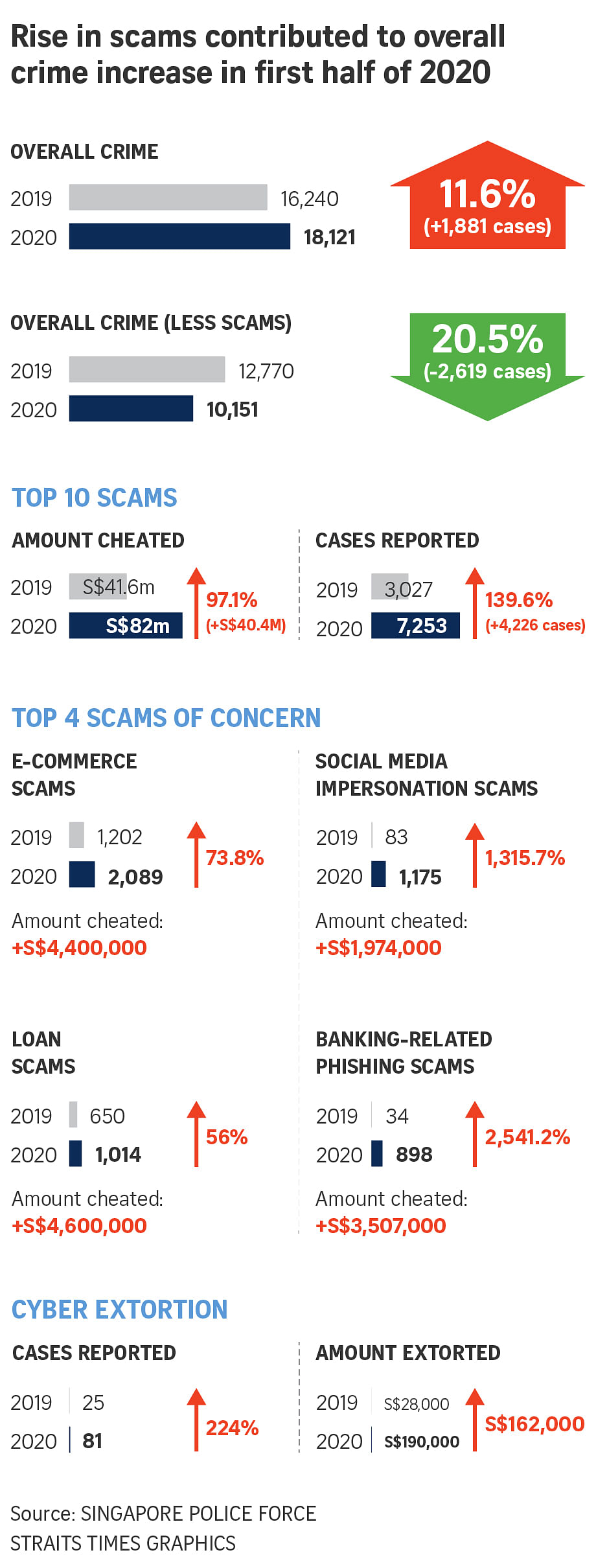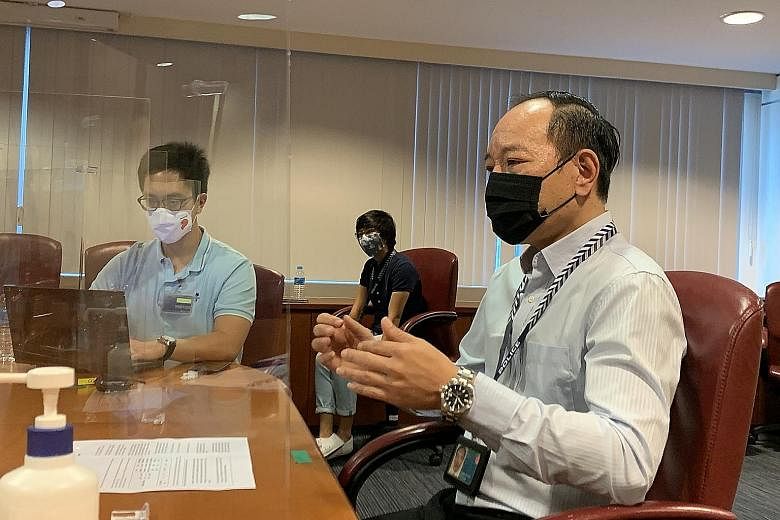Lyena (not her real name) was kept on the phone for two hours by a scammer posing as a Microsoft technical support employee, during which he managed to obtain her bank account details and arrange a transfer of $35,000 out of the account.
It was a traumatic experience for the 60-year-old educator, even though the money was eventually recovered, thanks to quick action by the police.
Speaking to reporters in a phone interview yesterday, Lyena said she saw a pop-up message on her computer on May 28, saying her computer was "at risk" and that she had to seek help immediately.
As her computer's anti-virus software had just expired then, Lyena panicked at the thought that her computer had been infected by a virus and called the number provided in the pop-up message.
"The man who picked up the phone introduced himself as a Microsoft employee and he sounded very professional," Lyena said. "He asked me to install UltraViewer, an application that would give him remote access to my computer, so he could find out what the problem was."
The scammer used fabricated photos to convince Lyena that her computer had been hacked by eight people, and persuaded her to reveal her bank account details on the pretext of protecting her from the hackers.
Lyena received a call from her bank the next morning informing her that $35,000 had been transferred out of her account into another bank account. It was only then that she realised that she had been scammed. She made a police report immediately.
She is grateful that the police acted swiftly and were able to recover $33,000 in three days and the remaining $2,000 soon after. "I would never have thought that I would become a victim of a scam. It was a really traumatic experience. I've since installed anti-virus software in both my phone and computer," she said.
Commercial Affairs Department senior investigation officer Alan Kit said that when Lyena filed the report, the police immediately contacted the banks to freeze the accounts. "We got hold of the particulars of the beneficiary who had received $35,000 from Lyena's bank account. My colleague and I went down to his address immediately and were able to recover $33,000 in cash," Mr Kit said.
The remaining $2,000 had been frozen in the beneficiary's bank account and the police got a court order for it to be returned to Lyena.
Mr Kit said the scammers had contacted the beneficiary, a businessman, and given the excuse of buying surgical gloves from him in order to deposit $35,000 into his bank account. The beneficiary had withdrawn $33,000 to pay his glove supplier and had no idea that the money was from a scam victim.
In the first half of this year, there were 317 cases of tech support scams reported to the police, more than 10 times the 30 cases in the same period last year. Victims lost a total of $15 million, up from $340,000 in the same period last year.
That makes tech support scams the second costliest kind of scams here after investment scams, in which victims lost $22.3 million.
Meanwhile, the largest amount cheated in a single scam case in the first half of this year was $958,000.
Yesterday, the police said 261 suspected scammers and money mules are under probe, following a two-week-long islandwide enforcement operation. The suspects are believed to be involved in more than 500 cases of scams, involving sums exceeding $3 million.
Mr Kit said cases involving scammers posing as tech support staff are on the rise now that many people are working from home. He advised the public not to follow instructions to install applications, type commands into the computer or log in to online banking accounts. "All incoming international calls are prefixed with a plus sign and the public should be wary when receiving unsolicited calls from overseas."



